Related Tags
How to buy a vintage guitar – tips from industry experts
We asked a range of vintage-guitar aficionados, industry experts, dealers and players for tips on securing the guitar of your dreams.
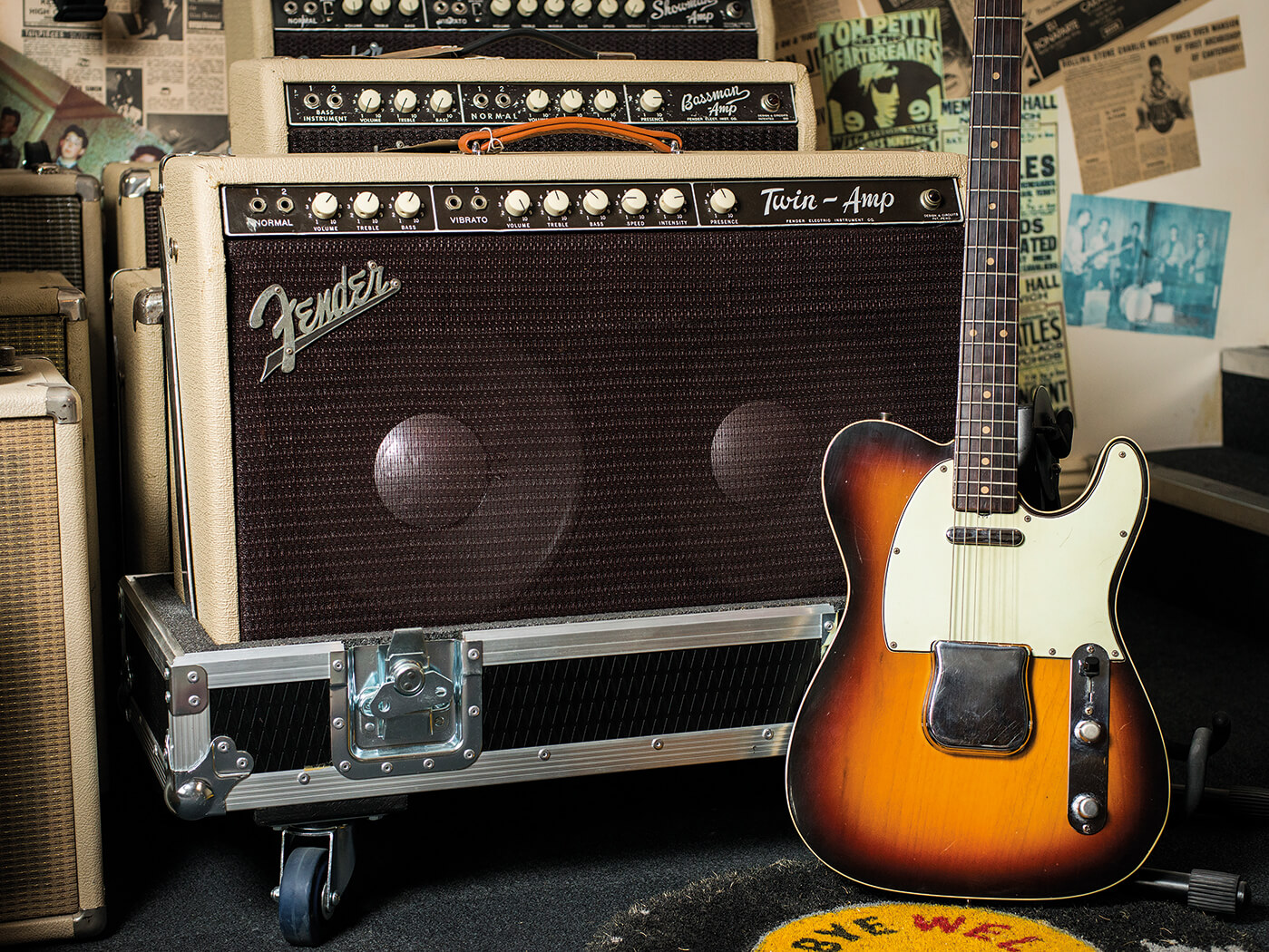
While most of us lust after battered old instruments, dropping a potentially hefty amount of cash on a guitar that’s old enough to remember the last time Britain wasn’t part of the EU is a scary prospect if you don’t know what you’re doing. And that’s where we’re here to help.
In this list, we’ve assembled a global panel of experts – from dealers and collectors, to repairers and rock stars – to give you the benefit of their hard-earned wisdom and help you take the plunge into the wonderful world of vintage-guitar ownership. But first, let’s meet our experts.
The panel
 Michael James Adams
Michael James Adams
Formerly the co-owner of Seattle vintage guitar repair specialists Mike & Mike’s Guitar Bar, Mike now lives in Long Beach, CA, playing guitar with the likes of VAVÁ, Kali Kazoo, and Fellow Robot, as well as contributing to Guitar.com and Fretboard Journal. He knows more about old Jazzmasters and the guitars of Rivers Cuomo than anyone else we know.
 Kris Blakely
Kris Blakely
The man better known as Fried Okra on Instagram and the Les Paul Forum, Mississippi native Kris has assembled one of the coolest guitar collections ever featured in this publication. His inventory includes everything from 50s Strats and Teles to 1930s Gibson acoustics, as well as a 1959 Les Paul previously owned by none other than Paul Kossoff.
 James Gay
James Gay
James is the guitars manager at Well Played Gear, experts in used and vintage guitar gear. Prior to joining WPG, James worked for legendary Nashville guitar repairer Joe Glaser, where he serviced, repaired and restored guitars for some of the most legendary artists in the business.
Ed Oleszko
Guitar.com contributor and vintage guitar obsessive Ed is probably the only person you’ll ever meet who takes 1950s Gibson Les Pauls and a 1951 Fender V-Front Super out for a function band gig. Ed’s also one half of the ‘Tone Twins’ YouTube channel, where Ed and Guitar.com’s own Huw Price get extremely nerdy about vintage guitars and amps.
Dan Orkin
Dan Orkin is director of content at Reverb, the online marketplace for buying and selling new, used and vintage music gear. One of the first employees to join Reverb, Dan has helped the team produce thousands of articles, videos, and more. A go-to for sales trends and pricing data, Dan also edits the Reverb Price Guide.
 John Shults
John Shults
The proprietor of True Vintage Guitar in Birmingham, Alabama, John Shults bought his first vintage guitar – a ’72 Martin D-35 – back in 2009, and has been obsessed with them ever since. Since 2014, he’s been driving all over the Southeastern United States searching for vintage guitars to buy and restore, documenting their stories on his Instagram account.
The tips
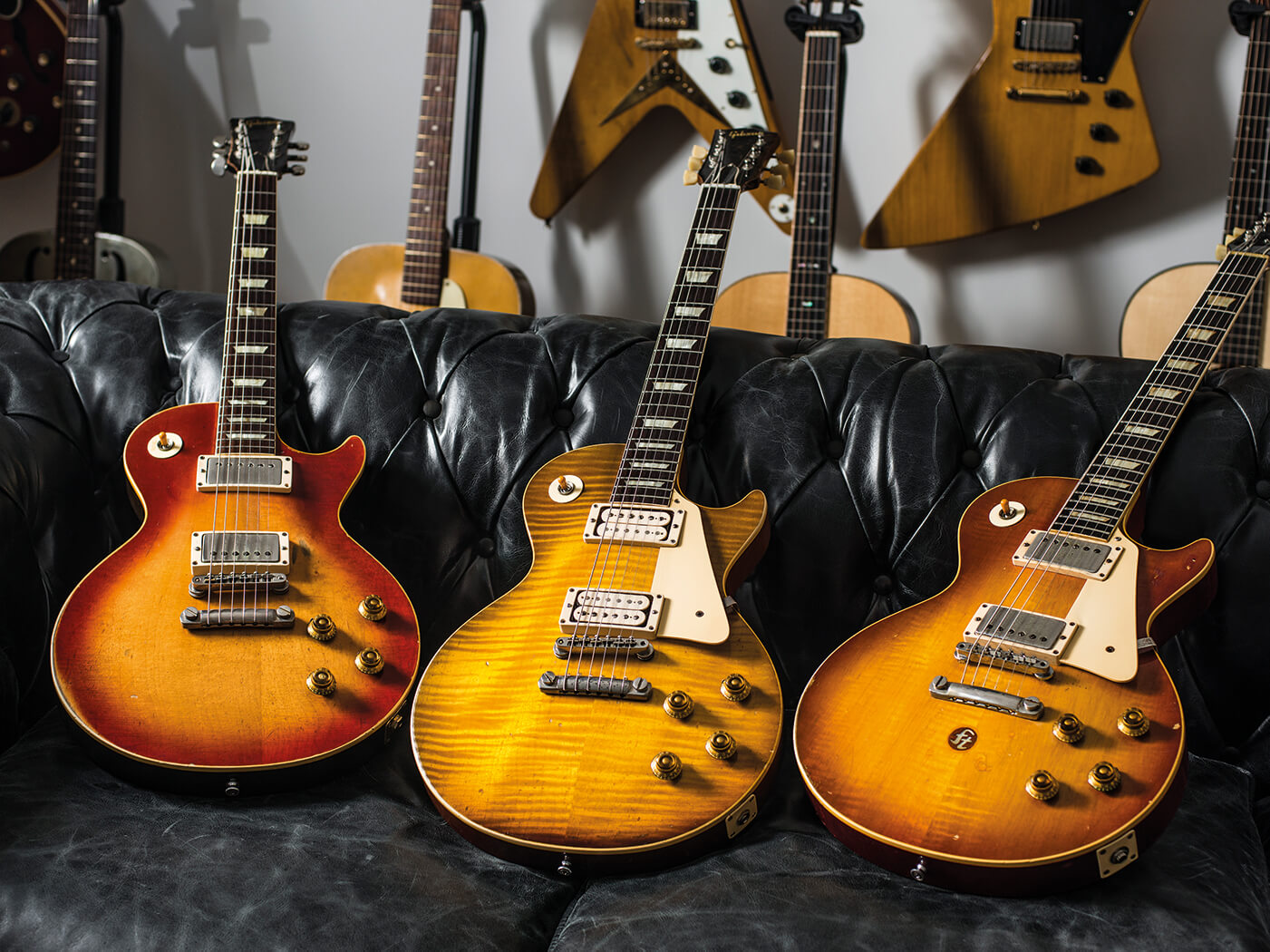
Guitarist, know thyself – James Gay, Well Played Gear
“Are you a player, or a collector? For a player, the biggest thing is that the instrument still functions. If it doesn’t function properly, playability goes out the window. I’m talking specifically about things like the truss rod (if it has an adjustable one) working, if there are any obvious signs of damage to hardware or structure, does it have fret issues that need to be addressed, etc. It’s important to make sure the ‘bones’ of the instrument, so to speak, are still good.
“For a collector, the priorities shift a little bit. Their chief focus mainly becomes that things haven’t been modified, regardless of playability. Signs like if it’s been refretted, if the electronics have been changed or replaced, if the hardware has been swapped out. Has the finish been touched up on certain areas, hiding a repair (ie a headstock break), things like that all affect the potential value of the guitar.”
Love is the key – John Shults, True Vintage Guitar
“Buy what you love. A lot of buyers get hung up on which guitars or amps have better investment potential and lose sight of the reason they are looking at guitars in the first place. You’ll always be best informed on the guitars and gear that you love. Allow yourself to get side-tracked on whatever gear is occupying your headspace. You can’t really predict the future value of anything so you might as well have what you love!
“If profit or investment potential is your sole reason for buying vintage, then you will likely have a bad experience. Profit and investment potential are sometimes a bonus when owning vintage but they’re not the reason vintage gear is fun.”
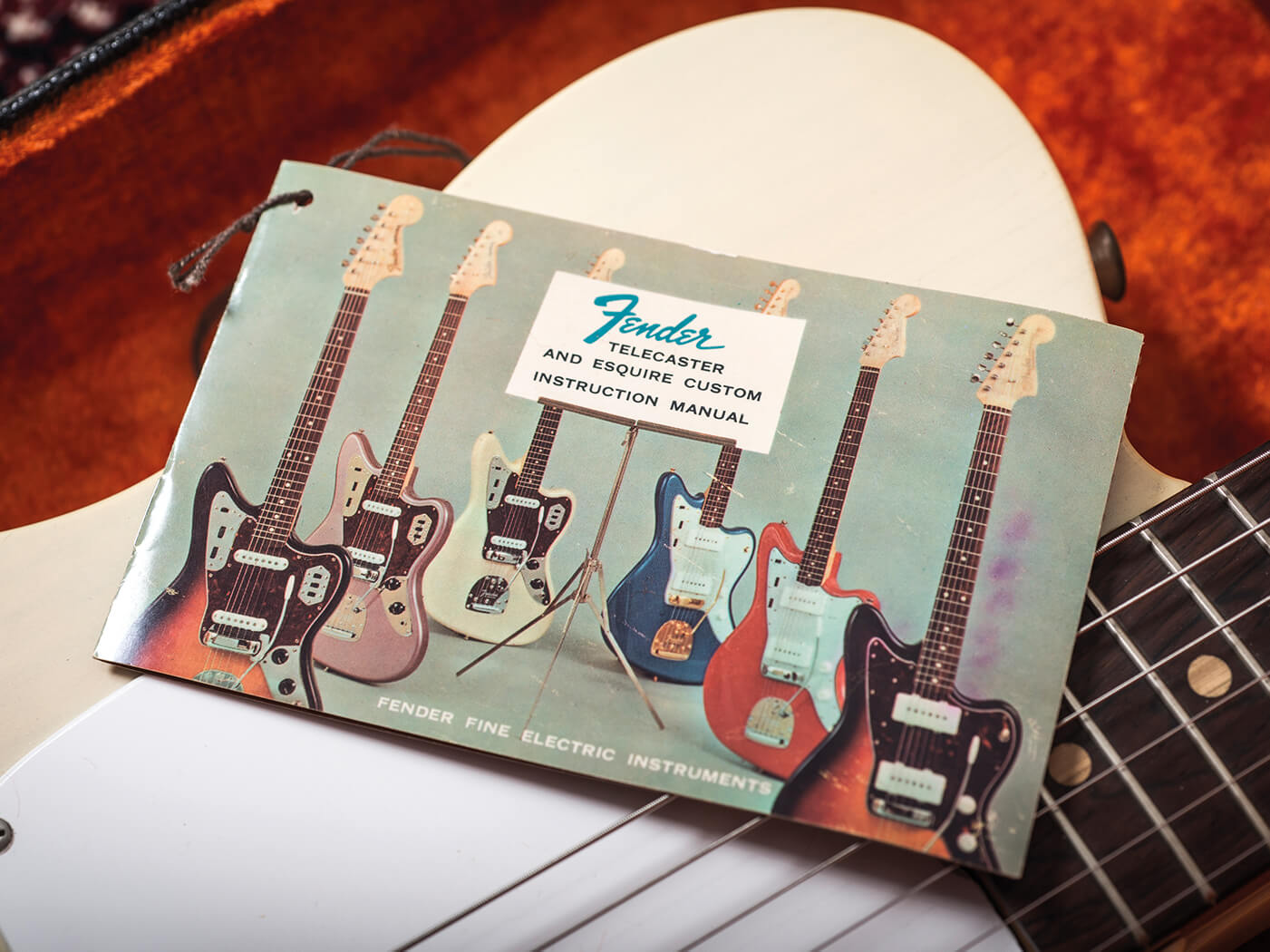
Knowledge is power – Ed Oleszko
“Do your research, knowledge is power. Read, read and read some more… research pictures and video. Get to know the minute details of the guitar model you’re thinking of buying, down to the last screw and assess its current condition and originality compared to a 100 per cent stock model.
“If you can’t physically check out the guitar in person then ask for lots photos of every detail (inside and out including under ‘black light’). I’d also ask for video and sound. If you are well-read, armed with research and knowledge you are in a stronger position to assess the guitar’s condition, quality and originality and ultimately therefore its fair value.”
Don’t be afraid to ask questions – Dan Orkin, Reverb.com
“If you see a listing that indicates some sort of damage either in the description or photos, don’t hold back from asking more questions and getting specific. When buying vintage online, it’s really important that buyers feel empowered to communicate with sellers to address any questions or concerns, whether you’re buying from a pro shop or an individual.
“When using Reverb, for instance, it’s really easy to initiate a conversation with the seller on any listing on the site. If you have any concerns or need more details, it’s way better to communicate that up front. Plus, most people who sell vintage guitars online are really passionate about it so usually will share some of that passion for the instrument with you as part of the process.”
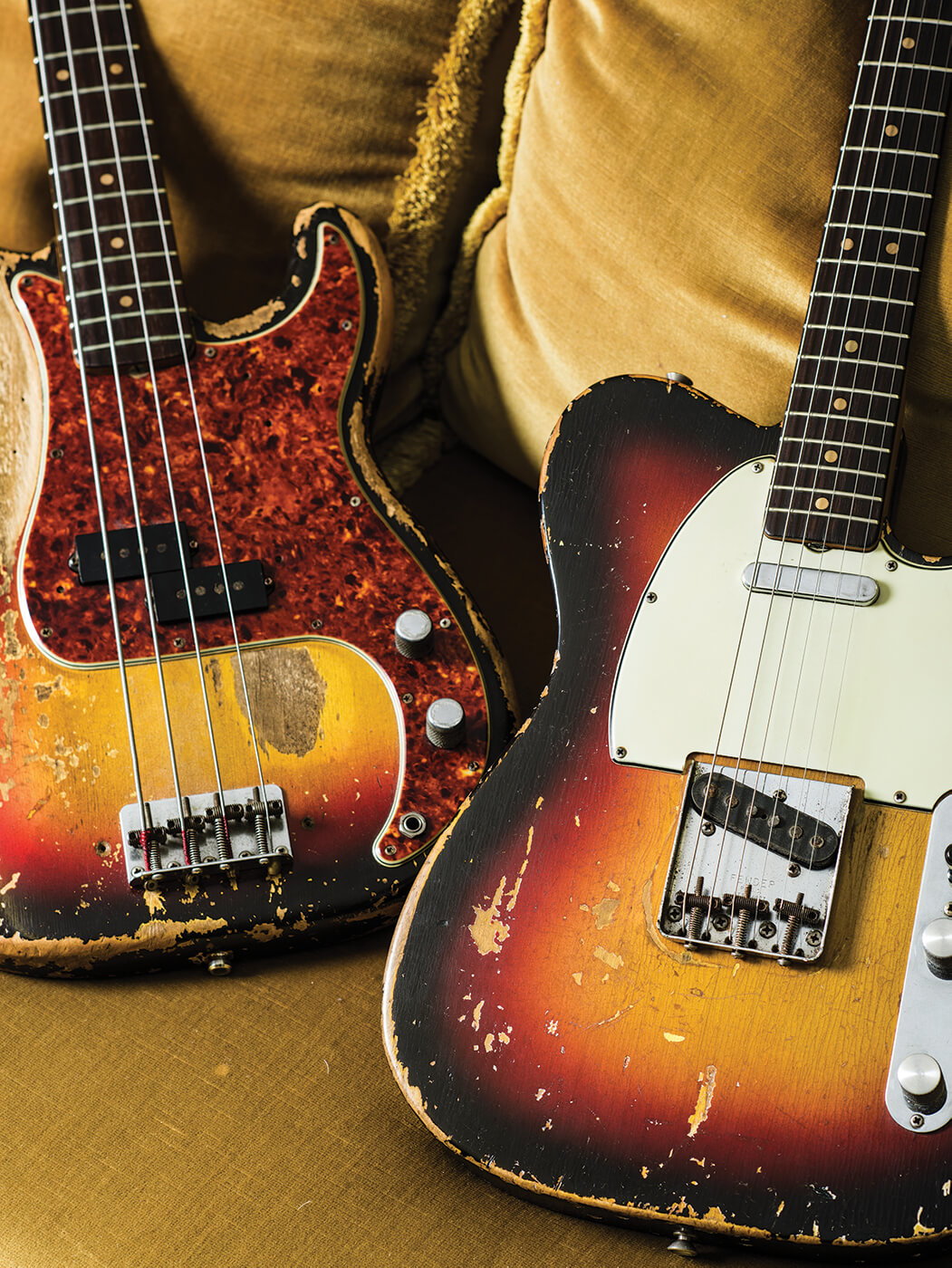
Trust your gut – Kris Blakely
“I see and hear of this happening all too often. You find the one, it has a story that really intrigues you, like the old, ‘It was my grandfather’s guitar’ thing. Yeah, it could be, but where is the provenance? If something in your gut tells you something is amiss, I find it best to sleep on it – and it’s so important to not be afraid to ask questions.”
Remember what it’s for – Michael James Adams
“The most common pitfall I see among vintage-guitar buyers is the tendency to treat old instruments like religious artefacts or priceless relics. True, vintage guitars can be thrilling to hold and play and some do have an innate sense of history that’s compelling. But at the end of the day, they’re still just wood and wire, so it’s important to temper your expectations.
“For instance, I see so many folks write off guitars that aren’t 100 per cent original, but unless your goal is to collect and maintain an absolutely pristine collection, changed tuners, modern potentiometers, and even a fresh coat of paint shouldn’t dissuade players from picking up the guitar of their dreams. Those things can also bring huge savings, so keep an open mind and understand that guitars are meant to be played and anything that comes into contact with human beings is bound to have a few issues.”
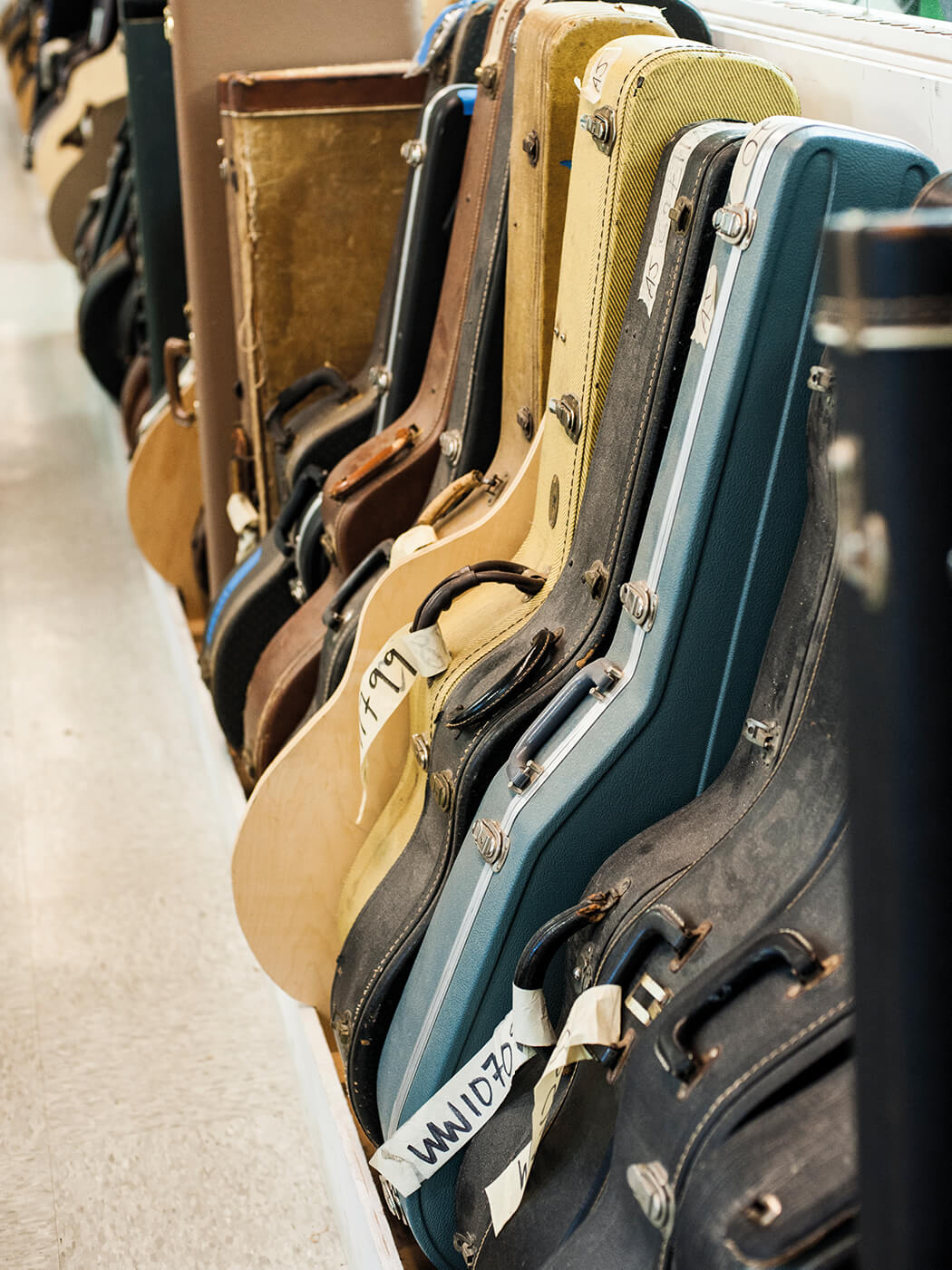
Bring a professional – James Gay, Well Played Gear
“I always recommend spending some time with the instruments in person before committing to a purchase. If you don’t know how to do things like adjust a truss rod, or give an instrument a basic setup, asking to have the guitar inspected by your luthier/guitar tech would be a great idea, just so they can make sure everything is structurally sound.”
Beauty can be skin deep – Michael James Adams
“One thing to be aware of with refinished guitars is that sometimes the new finish may be hiding modification scars, but if you hold the body in the light at the right angle, a good reflection can often highlight the otherwise undetectable lines of filled-in routs. And if you’re not sure whether or not a guitar is refinished, make sure you’re familiar with the available colours of the era as well as what those shades actually looked like at the time.
“For instance, there’s a lot of argument about what constitutes a proper Fiesta Red, but there’s definitely some variation in the paints used, as well as how an aged clear coat can change the hue.”
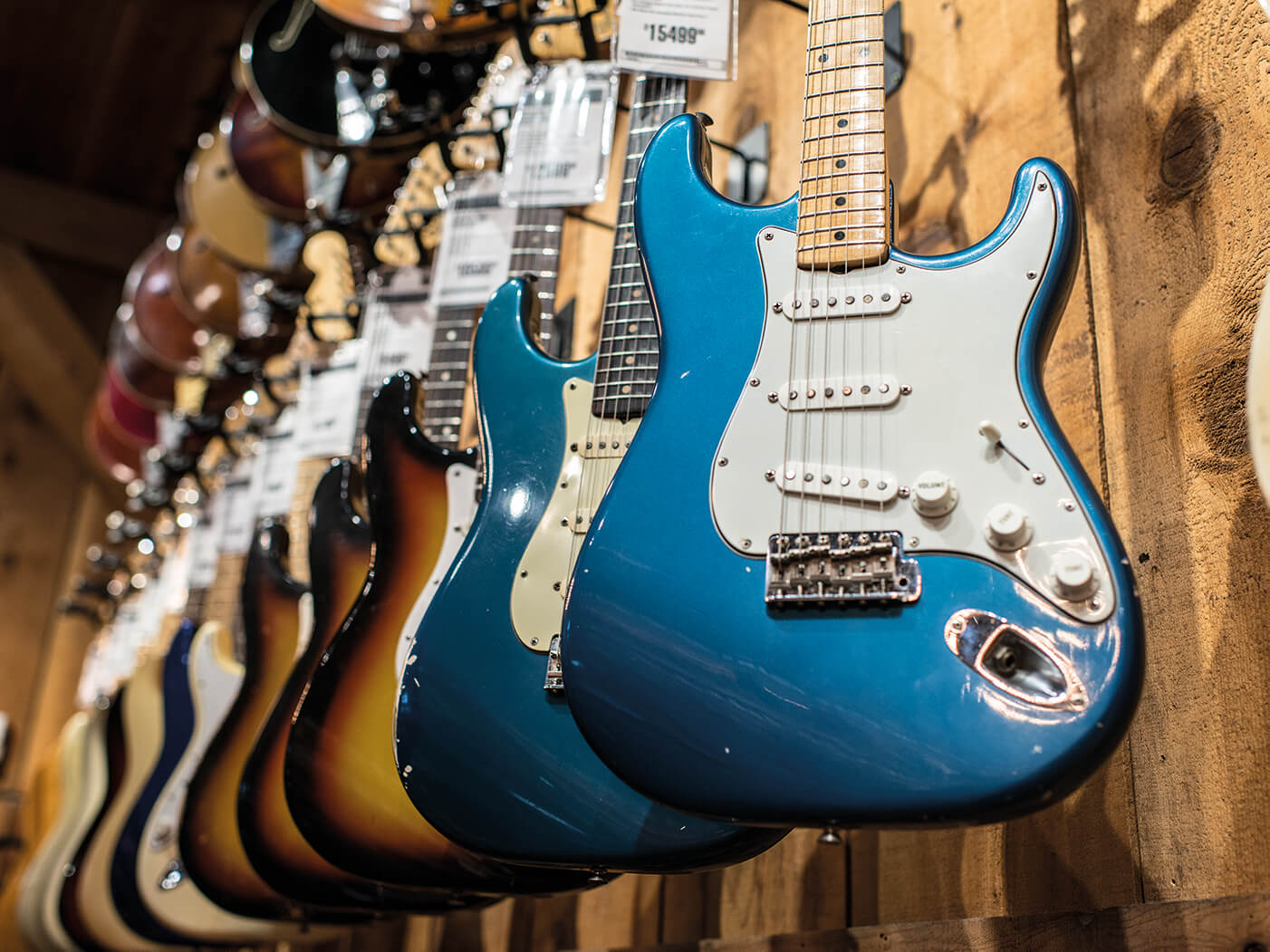
Even ‘iconic’ guitars will need some TLC – James Gay, Well Played Gear
“I’ve seen a lot of people focus so much on a specific year or range of years. For example, everyone knows that a pre-war Martin is like the Holy Grail of dreadnought acoustics. But that doesn’t necessarily mean all of them are going to be great right away. Decades-old instruments often end up having all sorts of hidden issues, either due to string tension and its effects over a generation, or even due to haphazard luthier experiments gone wrong.
“Sometimes, even a guitar that appears restored from the outside could end up needing a good workover by someone with a real eye for vintage instrument restoration before it truly sings the way it’s meant to.”
Today’s trash might be tomorrow’s treasure – Kris Blakely
“I’m funny about telling someone to shy away from a particular vintage instrument, because what’s not hot today, might be the hottest vintage guitar on the market tomorrow. Also it depends on what you may like and your bank account. If you were just hankering for a vintage guitar, but your finances are limited, then think about a well-worn vintage guitar. Those are cool and usually more available at reasonable prices.”
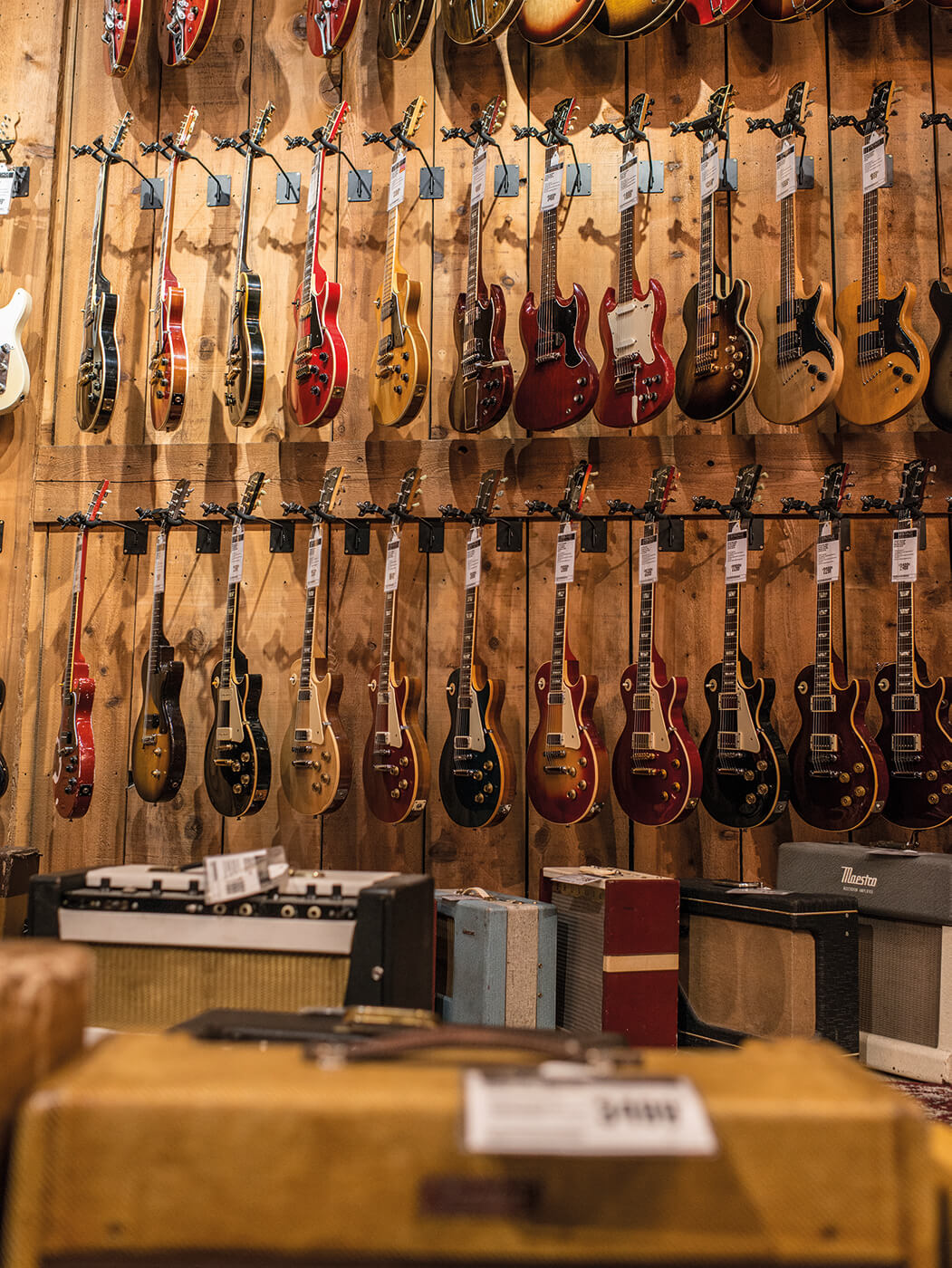
Be careful with budget brands – Dan Orkin, Reverb.com
“I would be careful with older, lower-end archtops from budget brands. They look great and some of them are fantastic guitars, but if buying online especially, it can be difficult to assess how playable they are ahead of time as they are prone to damage over time.
“That said, there are often great buys to be found in the lesser-known models or eras from key brands. Also buying the category of guitar that a brand isn’t super well-known for can yield some great value. For instance, people think of Guild electrics a lot less than their acoustics, but some of the 60s and 70s Guild electrics are really excellent buys.”
It’s a good time to get onboard – John Shults, True Vintage Guitar
“After the peak in 2008, the vintage market appears to be steady and growing at a reasonable pace. This is best for both buyers and sellers, because it makes the market safer to participate in. Vintage instruments have been historically an excellent investment, but that shouldn’t be the sole reason to participate. Your motivation to participate should reside in your love and passion for music and the gear that made it possible.”
Check out more tips by Joe Bonamassa on buying vintage gear here.

